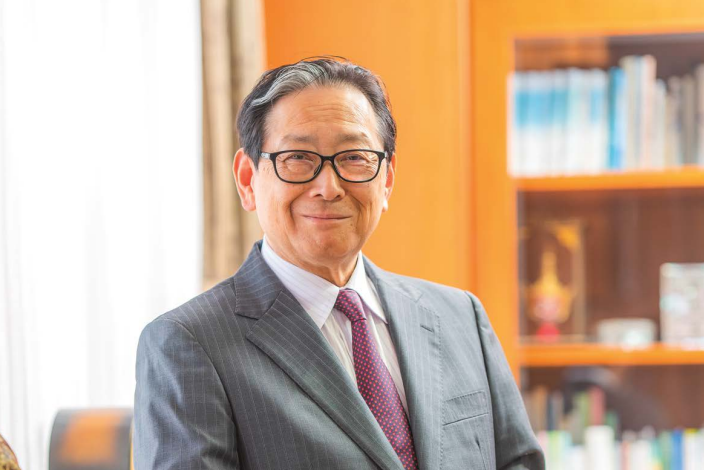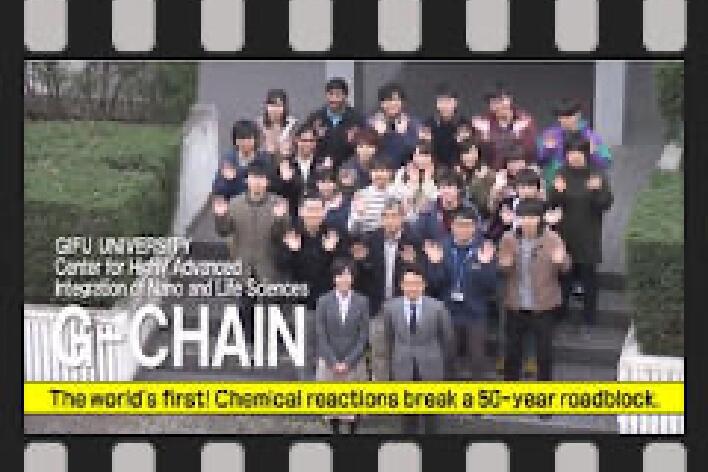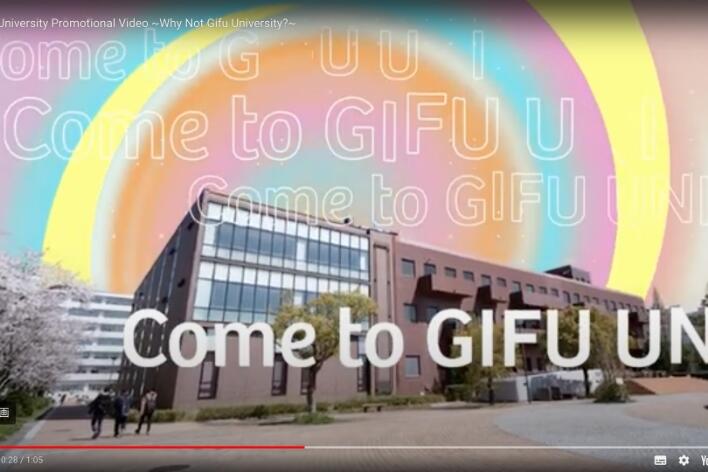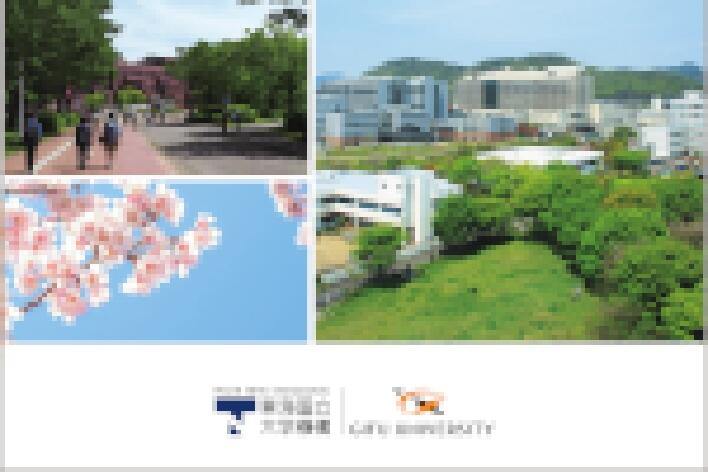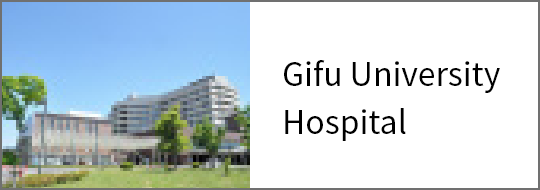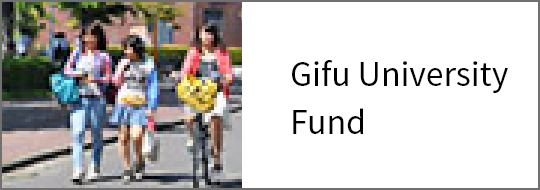International Exchange at Gifu University
*Information related to faculty members/students and graduate schools at Gifu University here are all that of the time of interviewing.
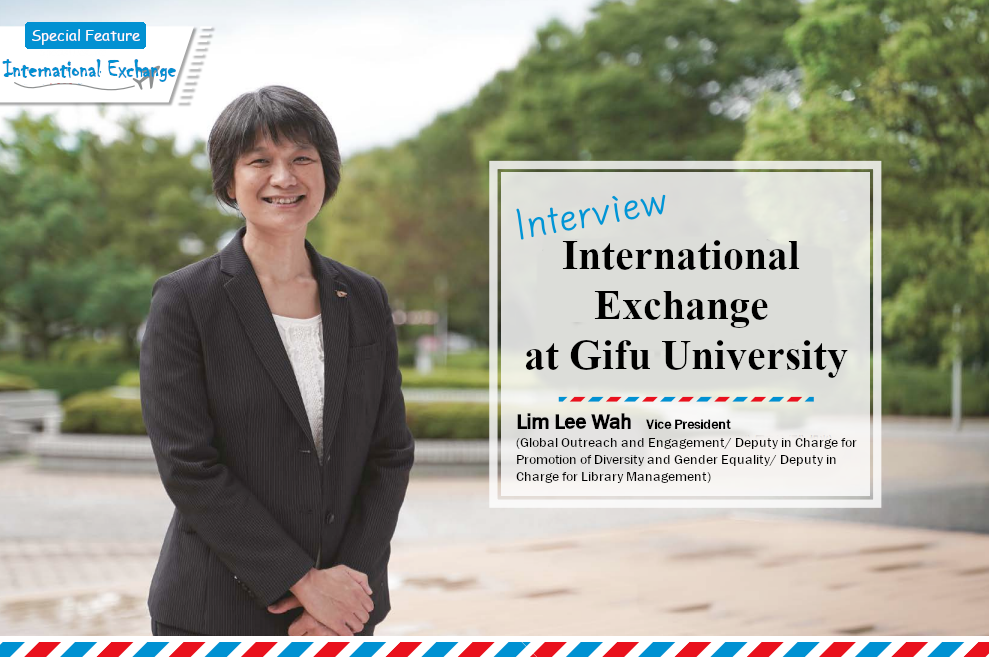
Aims - to become the university of choice for many international students, and to be a university known for cultivating 'Global Citizens'
Aiming to realize our mottos, 'giving back to community' through 'community-based internationalization,' Gifu University collaborates with various other academic institutions, such as the Indian Institute of Technology Guwahati (IITG, India) to develop a variety of international exchange programs and promote the internationalization of our campus.
Promoting the internationalization of education and research since 2015
Q.How are you involved in the internationalization of Gifu University?
After graduating from the National University of Malaysia (UKM, Malaysia), I worked for a company in Singapore and then came to Gifu University in 2000, where I became a faculty member of the Faculty of Engineering. At that time, and during the tenure of previous president to now, Gifu University launched its internationalization efforts, and in 2015, when the Gifu University Organization for Promotion of Glocalization (GU-GLOCAL) was established, I was involved in setting up a new program of English-only lectures in the Graduate School of Engineering. Later, when establishing the Joint Degree Program (JDP, see P8), I took on the role of liaising with my alma mater, UKM. From this academic year, as Vice President in charge of global outreach and engagement, I am responsible for international development and engagement.
Q.Please tell us about the international exchange policies and specific measures being taken to forward them.

Gifu University aims for 'community-based internationalization' and realization of 'giving back to community' policies in hopes that, after graduation, Japanese students who have studied abroad and international students are able to thrive in their communities with their global perspectives. To achieve this, we promote the internationalization of education and research under the following policies:
First, agreements with overseas universities. Currently, Gifu University has academic exchange agreements with 50 universities in 20 countries at the university level and with 61 universities in 25 countries plus one region at the faculty level. We offer a variety of study abroad programs, including exchange programs, summer school programs, and short-term research programs, for students and researchers of Gifu University and our partner institutions overseas. Since the inception of GU-GLOCAL, we have been enhancing the internationalization of our campus, including the installation of English signage, amongst other measures. We have also been enhancing the internationalization of our campus, including the installation of English signage since 2015.
Additionally, to help international students find employment and succeed in Japan, we provide seminars to familiarize them with Japanese manners and culture. Furthermore, we have made global internships, which offer work experience in Japanese companies and research institutes, mandatory. Currently, 40% of international students in the Faculty of Engineering find employment in Japan, mainly in Gifu and Aichi prefectures."
'Student First' policy holds a key
Q.What are the unique characteristics of international exchange at Gifu University?
A major characteristic of Gifu University's international exchange is its focus on international joint research with partner universities abroad. We accept international researchers for joint research projects lasting over a month, as well as dispatching and inviting young researchers to and from those universities. We also provide these researchers with financial support.
Gifu University has numerous joint programs with top-ranked universities worldwide, such as IITG, India, the University of Alberta in Canada, and Griffith University in Australia. Gifu University is one of only a small number of Japanese partner universities of IITG.
Q.What support system is in place for students studying abroad?
We provide student-first support. Generally, students have to pay tuition fees to both their home university and the host university while studying abroad. However, Gifu University has a system in place to waive its tuition fees during this period, reducing the financial burden and encouraging students to take on new challenges.
When selecting destinations for student exchanges, faculty coordinators who have connections with the faculty at the partner universities and are well-acquainted with the local conditions determine the most suitable destinations for the students. I myself am responsible for liaison with universities in Malaysia and Indonesia. Some of our partner universities do not have many student exchanges, but we are looking to boost the number and effectiveness of capable faculty coordinators to better coordinate and maximize this side of our partnerships.
To train staff for working as faculty coordinators, we also provide an open-application overseas training program where they visit the University of Alberta for 1-2 weeks and interact with corresponding department in the same field. This not only broadens their perspectives but also often makes administrative procedures for international students smoother, benefiting the students as well.
Continuous international exchange to foster 'Global Citizens'
Q.What are the noteworthy new initiatives?

State Medical
Currently, our partner universities are mainly in Asia and India, but to increase attractive research opportunities for doctoral students, we are also working to establish agreements with European universities. In recent years, we have had an increasing number of student exchanges with the University of Lille in France.
Gifu University is also expanding new agreements in cooperation with the Gifu Prefectural Government. Among others, Gifu Prefecture and the Republic of Lithuania have forged strong ties over the years through Chiune Sugihara (1900 - 1986), a Gifu native who issued transit visas to thousands of Jewish refugees, helping them escape the Holocaust during his tenure as vice-consul in Lithuania during World War II. Gifu University had already established an academic exchange agreement with Vytautas Magnus University which has 'Sugihara House' in its compound, but following the visit by President Gitanas Nausėda of Lithuania to Gifu Prefecture in 2019, Gifu University has been advancing further collaboration with the country. Additionally, following the visit of H.E. Mr. Rachad Bouhlal, Ambassador of Morocco to Japan, to Gifu University in May 2023, and President Kazuhiro Yoshida's visit to the Université Internationale de Rabat (UIR) in the Kingdom of Morocco in December 2023, Gifu University and UIR signed an inter-university agreement particularly focusing on cooperation with Gifu University Faculty of Engineering in the field of energy development, and with Gifu University School of Social System Management on a tourism promotion project undertaken in July 2024. Also, in July, Samarkand State Medical University in the Republic of Uzbekistan agreed to strengthen friendly relations with the School of Medicine. On all these fronts, moving forward, we will continue to enhance our student-first initiatives.
Q.Please describe your goals and vision for the future.

In the short term, we aim to increase the number of international students. The Ministry of Education, Culture, Sports, Science and Technology (MEXT) has set a goal under J-MIRAI* to have 500,000 Japanese students studying abroad and 400,000 international students in Japan by 2033. The Japan Association of National Universities has set a policy to increase the proportion of international students to 30% of all students by 2040. Currently, Gifu University has about 7,500 students, with 296 international students, mainly from Asia, making up about 4%. By the end of my term in 2025, we would like to increase this to 7%, including short-term international students.
We are promoting the necessary mindset changes among faculty and staff. For teachers, we encourage them to visit the foreign countries themselves and invite students they meet there as short-term international students, so they can experience the benefits of supervising international students. Recently, more and more teachers have been asking me to introduce them to international students.
The ultimate goal of international exchange is for prospective international students to choose Gifu as their destination and to settle in Gifu after graduation. Additionally, we hope that Gifu University students will find and learn a foreign language they are comfortable with, not limited to English, and become 'Global Citizens,' or 'citizens of the world.'
*J-MIRAI:Japan - Mobility and Internationalization: Re-engaging and Accelerating Initiative for future generations (by the Cabinet Secretariat)
